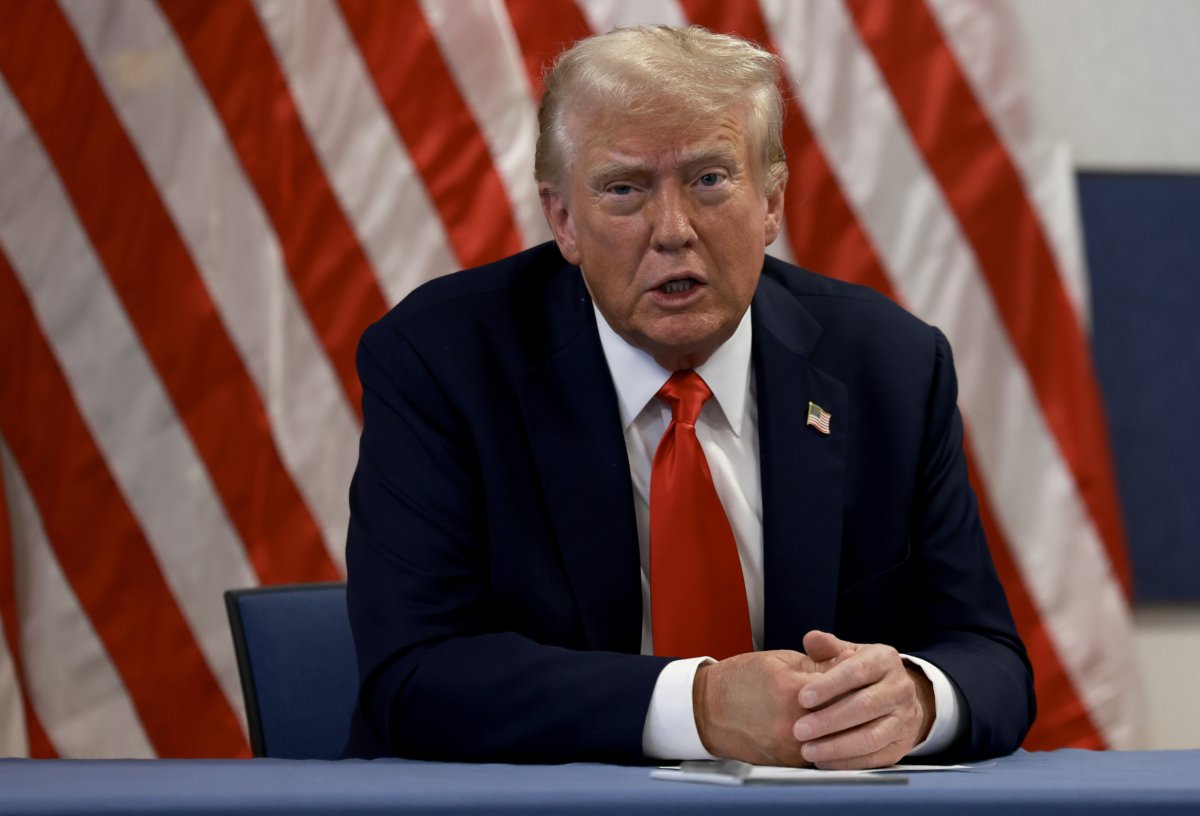While Donald Trump’s polling lead in the 2024 election has slipped away, it is too soon to suggest that Republicans cannot turn things around in the remaining three months of the campaign, experts have said.
For months, Trump was considered the front-runner in the election over President Joe Biden, with the incumbent’s reelection hopes appearing doomed in the wake of his stumbling CNN debate against the former president on June 27.
On July 21, Biden dropped out of the race and endorsed Vice President Kamala Harris for the Democratic Party’s presidential nomination. Since then, Harris has seen waves of enthusiasm and support for her White House bid, especially among young voters, who were previously thought to be disillusioned.
The momentum for Harris has also seen the vice president overtake Trump in the polls. According to FiveThirtyEight’s live average polling tracker, Harris is 2 points ahead of Trump as of August 5—with 45.5 percent of the vote to Trump’s 43.5 percent.
The Polling USA social media account, which aggregates national surveys, is also giving Harris an average 2-point lead over Trump in the polls, and RealClearPolitics shows Trump in second place for the first time all year.

Joe Raedle/Getty Images
While Harris appears to be the leading candidate heading into November and Trump seems to be struggling to regain momentum, Sean Freeder, an assistant professor of political science at the University of North Florida, suggested it is still “far too early” to make any assumptions about the current polling.
Freeder added that while the Trump campaign may be “very worried” about the polling shift in recent days, Harris’ 2-point lead is “far from insurmountable.” He said there could be some major unexpected event that sees Trump’s numbers improve.
“We can prove this to ourselves simply by looking backward to a four-week period in which a poor debate performance caused [Biden] to eventually abandon his campaign and the other presidential candidate was nearly assassinated,” Freeder told Newsweek.
“We wouldn’t have predicted these events in early June, and we therefore can’t predict the next 90 days now,” he continued. “That said, Trump had an unusually weak opponent in Biden, given his own party’s internal dissatisfaction, and it seems unlikely to me that Trump will again enjoy the kind of sustained positive polling he got pre-Harris.”
Over the next three months, a number of events that could prove decisive in the race are expected to unfold. These include Harris’ choice of running mate, Trump’s September sentencing in his falsifying business records case, and a potential debate between the two leading candidates.
Carl Cavalli, a professor of political science at the University of North Georgia, said that any update between now and November could prove significant, as this is the period when large numbers of voters begin to truly focus on the election.
“As we’ve already witnessed, debates can be decisive. If Trump and Harris agree to engage in one, or if their vice presidential candidates do so, it could go a long way toward helping one side break out from what has been a very close race to date,” Cavalli told Newsweek.
“Most Americans don’t pay much attention to the race through the summer. As we hit Labor Day, a time after the conventions and when debates usually occur, more people will likely engage. And this year, that engagement will be a very different dynamic than we’ve seen so far,” he continued.
An event occurring late in the campaign that can influence the outcome of an upcoming November election is so well established it already has a name: an “October surprise.”
While Trump and his campaign are seemingly struggling to make their attack lines on Harris stick—such as suggesting the vice president, whose mother is Indian and father is Jamaican, “happened to turn Black” in recent years for political gain—Freeder said that a well-timed attack against Harris in mid-October could “weaken” her campaign.
Freeder cited an October surprise that occurred during the 2016 election, when then-FBI Director James Comey reopened an investigation into Hillary Clinton’s private email server 11 days before that year’s election against Trump. Freeder said this “arguably cost” Clinton the race.
He added, “This is a race that either side could end up winning, but Trump’s campaign now has to acknowledge they’ll likely be running once more with the wind blowing against their sails instead of with them.”















































